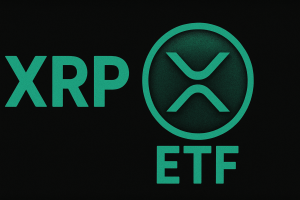In a letter sent to SEC Chairman Gary Gensler, two Congressmen articulate why a spot bitcoin ETF should be approved in the U.S.
Today, the Securities and Exchange Commission (SEC) Chairman Gary Gensler was sent a letter written by two U.S. Congressmen, Tom Emmer (MN-06) and Darren Soto (FL-09), advocating for the approval of a spot bitcoin exchange-traded fund (ETF) to begin trading in the country.
“We question why, if you are comfortable allowing trading in an ETF based on derivatives contracts, you are not equally or more comfortable allowing trading to commence in ETFs based on spot Bitcoin,” the letter said. “Bitcoin spot ETFs are based directly on the asset, which inherently provides more protection for investors.”
Emmer and Soto argue that spot-based ETFs are more preferred by investors because they can get direct exposure to the asset, unlike the futures ETFs which are based on derivatives. They made a comparison to the gold spot and futures ETF market, proving this claim. The spot-based gold ETF SPDR Gold Trust (GLD) has traded over $55.5 billion in the last 15 years, compared to only $50.4 million from the futures gold ETF DB Gold Fund (DGL).
“It is our understanding that previously the SEC chose not to approve a Bitcoin futures ETF or a Bitcoin spot ETF due to concerns about the perceived potential for fraud and manipulation in the Bitcoin markets,” the letter continued. “In fact, the SEC clearly articulated that these concerns could be addressed by demonstrating…that the underlying Bitcoin market is inherently resistant to fraud and manipulation (or that there are other means to prevent fraudulent and manipulative acts and practices); or…that a significant amount of trading took place on a regulated market (for instance, if the CME-traded Bitcoin futures market were to become the leading source of price discovery in the Bitcoin market). Please note that neither of these requirements state a preference for Bitcoin spot ETFs or Bitcoin futures ETFs.”
The Congressmen make the case that the pricing index that the bitcoin futures ETFs track, CME CF Bitcoin Reference Rate (BRR), gets 90.47% of their price data from the following bitcoin exchanges — Coinbase, Kraken, and Bitstamp. Highlighting that the concern of any fraud or manipulation in the market would also carry into bitcoin futures ETFs and not just spot bitcoin ETFs.
“For this reason, whether one, both, or none of these requirements has been met, the SEC should no longer have concerns with Bitcoin spot ETFs and should show a similar willingness to permit the trading of Bitcoin spot ETFs,” the letter stated.
There has been no shortage of filings for spot bitcoin ETFs in the United States. However, since the SEC has denied or delayed all of them, alternative spot BTC investment vehicles have emerged, amassing over $40 billion in assets, per the letter. As a result, some of these offerings are currently trading on over-the-counter (OTC) markets at values that naturally differ from their net asset value (NAV). Recently, these products have been trading at a steep discount to their NAV, according to the congressmen.
“Permitting futures-based ETFs while simultaneously continuing to deny spot-based ETFs would further perpetuate these discounts and clearly go against the SEC’s core mission of protecting investors,” the letter said.





















